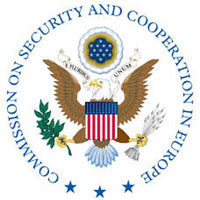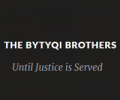Natasa Kandic and the Humanitarian Law Center Nominate for the 2018 Nobel Peace Prize
 Helsinki Commission Chairman Sen. Roger Wicker (MS) and Rep. Eliot Engel (NY-16), the Ranking Member of the House Committee on Foreign Affairs, today nominated Nataša Kandić and the Humanitarian Law Center for the 2018 Nobel Peace Prize.
Helsinki Commission Chairman Sen. Roger Wicker (MS) and Rep. Eliot Engel (NY-16), the Ranking Member of the House Committee on Foreign Affairs, today nominated Nataša Kandić and the Humanitarian Law Center for the 2018 Nobel Peace Prize.
Ms. Kandić founded the Humanitarian Law Center (Fond za humanitarno pravo) in Belgrade in 1992 to document egregious human rights violations committed during the conflicts associated with the breakup of the former Yugoslavia. More than 25 years later, the Humanitarian Law Center continues to fight for justice for victims of war crimes and to battle the extreme nationalism and strained ethnic tensions that linger in the Western Balkans.
The full text of the nomination letter to the Norwegian Nobel Committee can be found below:
The Norwegian Nobel Committee
Henrik Ibsens gate 51
0255 Oslo, NORWAY
Dear Nobel Committee Members:
We write to nominate Nataša Kandić and the Humanitarian Law Center for the Nobel Peace Prize of 2018. Ms. Kandic and the Center are based in Belgrade, Serbia.
In 1992, Nataša Kandić founded the Humanitarian Law Center (Fond za humanitarno pravo) to document egregious human rights violations committed during the conflicts associated with the former Yugoslavia’s demise. Of particular importance were the conflicts in Croatia (1991 and 1995), in Bosnia and Herzegovina (1992 to 1995), and in Kosovo (1998 and 1999). These human rights violations came to be viewed as war crimes, crimes against humanity, and even genocide. The gruesome ethnic cleansing campaigns of which they were a part led directly to deaths of more than 100,000 people, the rape and torture of tens of thousands more, and the displacement of millions.
The thorough documentation of these crimes by the Center became essential for the provision of justice, both at the International Criminal Tribunal for the former Yugoslavia, which concluded its work at the end of 2017, and in the national war crimes chambers in the countries of the region. Principal perpetrators, including political and military leaders, were held internationally accountable for the first time since the Second World War. Surviving victims, and the traumatized communities in which they lived, were given a chance to find closure and to rebuild. The countries of the region have been encouraged to adhere to the rule of law and to accept the legacy of a horrific past.
The Center continued its work throughout the conflicts and in a hostile environment for human rights advocacy. Far too many in Serbia have sought to deny abhorrent crimes or to justify them by demonizing the victims; many more remained silent as ethnic cleansing proceeded unchecked. In contrast, under Kandić’s leadership the Center spoke publicly against acts of aggression, reported on atrocities committed, and rejected the hatred upon which they were based. Although impossible to measure, we can safely assume that the Center’s efforts deterred additional human rights violations.
Today, Nataša Kandić remains an inspiration to a new generation of dedicated young professionals who now lead the Humanitarian Law Center as it exposes those who have evaded justice and takes on the extreme nationalism and strained ethnic tensions that linger in the Western Balkans.
As members of the U.S. Congress, we helped shape the international response to the conflicts which erupted in the Western Balkans and we continue to support and encourage post-conflict recovery in the countries of the region. We can think of no person or organization more deserving of the Nobel Peace Prize than Nataša Kandić and the Humanitarian Law Center and are confident that such recognition would further the cause of peace and reconciliation in this and other troubled regions of our world.
Thank you for considering this nomination.
Sincerely,
Roger F. Wicker
U.S. Senator
Chairman, Commission on Security and Cooperation in Europe
Eliot L. Engel
U.S. Representative
Ranking Member, Committee on Foreign Affairs







